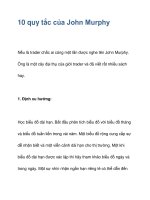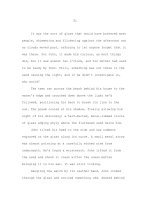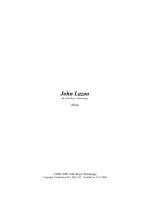Hollander, john picture window
Bạn đang xem bản rút gọn của tài liệu. Xem và tải ngay bản đầy đủ của tài liệu tại đây (2.18 MB, 88 trang )
also by john hollander
Poetry
Figurehead and Other Poems 1999
Tesserae and Other Poems 1993
Selected Poetry 1993
Harp Lake 1988
In Time and Place 1986
Powers of Thirteen 1983
Blue Wine and Other Poems 1979
Spectral Emanations: New and Selected Poems 1978
Reflections on Espionage 1976
Tales Told of the Fathers 1975
The Head of the Bed 1974
Town and Country Matters 1972
The Night Mirror 1971
Types of Shape 1969
Visions from the Ramble 1965
Movie-Going 1962
A Crackling of Thorns 1958
Criticism
The Poetry of Everyday Life 1998
The Work of Poetry 1997
The Gazer’s Spirit 1995
Melodious Guile: Fictive Pattern in Poetic Language 1988
Rhyme’s Reason: A Guide to English Verse 1981
The Figure of Echo: A Mode of Allusion in Milton and After 1981
Vision and Resonance: Two Senses of Poetic Form 1975
The Untuning of the Sky: Ideas of Music in English Poetry
1500–1700 1961
For Children
The Immense Parade on Supererogation Day and What
Happened to It 1972
The Quest of the Gole 1966
PICTURE WINDOW
PICTURE WINDOW
Poems by
John Hollander
Alfred A. Knopf
New York
2003
this is a borzoi book
published by alfred a. knopf
Copyright © 2003 by John Hollander
All rights reserved under International and Pan-American Copyright
Conventions. Published in the United States by Alfred A. Knopf, a division of
Random House, Inc., New York, and simultaneously in Canada by Random
House of Canada Limited, Toronto. Distributed by
Random House, Inc., New York.
www.randomhouse.com/knopf/poetry
Knopf, Borzoi Books and the colophon are registered trademarks
of Random House, Inc.
Library of Congress Cataloging-in-Publication Data
Hollander, John.
Picture window : poems / by John Hollander.—1st ed.
p. cm.
isbn 1-4000-4007-8 (alk. paper)
I. Title.
ps3515.o3485 p53 2003
811'.54—dc21
2002030194
Manufactured in the United States of America
First Edition
For
Adam,
Lucy,
&
Noah,
eventually
Contents
I
by heart
3
in transit
4
those fields
6
and most of all, i wanna thank . . .
8
considered speech
9
entwining
10
columnar
12
picture window
15
light glass still life
16
rooms by the sea
19
ruined tower
21
names on trees
23
song,
25
CON SORDINO
hope
27
EN REVENANT D’AUVERGNE
29
the institute
30
II
horace, ode ii.14
U B I S U N T,
etc.
33
34
to donald hall
35
on a stanza of h. leyvick
37
commemorative stanzas
40
four timepieces
43
a mutual flame
45
semiology
46
sue you have seen
47
oggi
48
vii
III
open in close
51
an old palindrome
52
tailor-made
53
a rainbow for lunch
54
to andrew forge, on receipt of his
wash drawing, life-size, of the huge
dobsonfly (Corydalus cornutus)
55
black mask
57
fooh-fooh
58
IV
viii
horace, ode i.9
63
to an old latin teacher
64
where it comes from
68
a kind of fear
71
from a palace diary
73
three sisters
75
tales of three brothers
79
dead animals
81
Notes
83
Acknowledgments
85
I
BY HEART
The songs come at us first; and then the rhymed
Verses like speech that half sings; then the tunes
Of summer evening—the train whistle’s sigh
Westering, fading, as I lay in bed,
Sunset still creeping past the lowered shade,
The gossip of swallows, the faint, radioed
Reed section of a dance band through an open
Window down at the far end of the street;
The Good Humor man’s bells who tolled for me.
And then the strings of digits that we learn
To keep like bunched keys ready to unlock
All the boxes we get assigned to us
By the uncaring sheriffs of life itself.
We play by ear but learn the words by heart
(Visions we have by head); yet even when
The sight of the remembered page has dimmed
The jingles that we gleaned from it remain
Lodged with us, useful, sometimes, for the work
Of getting a grip on certain fragile things.
We are ourselves from birth committed to
Memory, to broad access to a past
Framing and filling any presentness
Of self that we could really call our own.
We grasp the world by ear, by heart, by head,
And keep it in a soft continuingness
That we first learned to get by soul, or something.
3
IN TRANSIT
All symbols are fluxional; all language is vehicular and
transitive, and is good, as ferries and horses are, for
conveyance, not as farms and houses are, for homestead.
—Emerson
Well, then, if that’s the case, let’s start packing and get
going—not “packing it all in,” of course,
But “all up”—and with some brawny friends and brainy
lovers, let’s get all our stuff loaded on
Some truck and get it on its way, whatever way
that may indeed be toward whatever place.
“Metaphoron,” in modern Greek, conveys the sense
of “moving van” (if you speak modern Greek),
A vehicle crammed with the mishmash of tenors
that should not be allowed to rot at home
(Too much of the untransferred literal all too
soon rots in the due course). On with it, then,
And off we go, the cityside, the chartered views
high from the cabled bridges, the long haul
Through the enclosing tunnel, the wide traverse of
nonurban sprawl, and then the countryside,
Its various selves, all rushing by to fill
spaces we vacate, one by fleeting one.
Are we talking about the springtime here, early
forsythia moving the very air
Forward into another placelike state of things
(the scheduled time for moving)? But even
The dullest February dawn gives up its first
catatonic sulk and soon starts loading
Up with the innermost of motions assuring
that each new morning will be moving day.
Semper eadem, constant?—true enough for some
things (such as Latin mottoes like itself),
But with all the stuff of our lives, we have to keep
going, going, or we will all be gone.
4
Rumble of diesel, crush of huge tires over
protesting gravel, shouts, whining and boom
Of boom box indeterminately modulate
through the long roar of the road as all is
Transported over the widest but most unseen
of interstates to where we hear only
Summer’s drone at the end of the rhododendrons,
if only the soundless groan of the dark
Shiny green in which its leaves are so dustily
absorbed as if remembering their time
Of blossoming back in that other place from which
they had been moved in the vast eight-wheeler
That, getting on with things, has brought them and us to
the place that yet was right here all along.
5
THOSE FIELDS
The fields were wild with red
and yellow flowers,
the rocky outcrops
bare and gray and civil,
or, on their northerly
sides greened up a bit
with kindly lichens
among which someone then
was picking out a path
and heading for what
can no more now be
determined than what tones
of sleep the overcast
sky had contrived to
vary its staring
blank with, all certainty
now confined to knowledge
of a remembered
red, an envisioned
yellow, wild in my eye,
then, burning through the thick,
uncolored cloud of
what even the long
interim forgot, in
its drifting toward
this quickened moment
of the wild recalled
from early solitude,
6
here at a late place where,
spotted with rocks of
fact, regathered fields
arise in a calm room
in lamplight and its soft
shadows that give shape
to what the low sound
of now has come to mean.
7
AND MOST OF ALL, I WANNA THANK . . .
Patient language, always waiting to be
Misused, waiting for it—unless, of course,
You’re from the South, in which case “waiting on”
(There he goes again!); but then, in my way
Of speaking, “waiting on” is not “awaiting”
But rather bustling about, as in black tie,
Bringing the latkes or the dolcelatte—
Waiting for it to come around again,
The pow! on the jaw with regulation gloves,
The stylized oof! in the midsection, the blort!
Of regurgitation as it all comes home,
The body of the letter being slugged
And all the spirit twisted out of it
By the marauders of the metaphor,
Why should we so invoke you, anyway,
Like some sculptor making plaster casts
Of her mallet and chisels? Or like another
One, carving Carrara marble boxes
Of Kleenex which all of us might have to use,
Not just herself ? Well, in that patience lies
A swift, mercurial agency we’ve come to count
On, for turning up the suffering in the act,
The covert action in the passiveness,
As if your strength were mirrored in the world.
Here, then, at the most recent end of things,
It’s time for some sort of acknowledgment
Of what makes it the case strangely that I’m
In dire straits in Detroit, and on the streets
—Without making Detroit an everywhere—
And the words that in fiction only “bring”
Me there, ring true and truly ring me there.
8
CONSIDERED SPEECH
“Strictly speaking” (he then insisted) “these are not—”
(Whatever they were). But when do we ordinarily speak
Strictly: even, say, “I love you” qualifies itself
Always somehow in quotes, like a hedged cliché,
And only not a cliché when it’s intended to be
That overdone vulgar lie: otherwise—when it’s uttered
Expressively, in the deep conviction that nobody else
Had ever felt quite this way before, a report sadly shattered
By the dumb old words that everyone—liars and airheads and kids—
Eventually must resort to: “I love you,” the Leveler.
These days to be truly lofty takes a lot of stunt flying,
Playing slow and loose with the language that we’ve been given.
Acute as we have, and get, to be, we conclude in nothing
But grave accentuations cut in the rind of the earth.
9
ENTWINING
Datum: stretching wisteria, grown thick
as a strong young wrist
wrapped around the white verandah column
with such a grand and
helical gesture of its twisted stalk
diving behind it,
as if to say, “Any as if to say
they’d try and paint me
with can never manage to stick to me.”
But paint away at
fable’s coloring books they always would.
Consider thus a
pliant something entwining something stiff
and vertical—the
very syntax of their kind of verdant
touch can encode far
more meaning than any particular
pair might keep for and
from us, half hidden, half revealed, such as:
the grape vine clinging
to the olive tree, which whimpers ever, Why
do you molest me,
vine, I’m Athena’s tree; take all your grapes,
heavily bunched and
dangling, away—a virgin must flee Bacchus’
crushing attentions.
Or, bare of leaves, the withering old elm
gently enfolded
in the sweet shading green, another vine
extends about it:
pictured in the old books they represented
amicitia,
loving friendship, etiam post mortem
durans, extending
even beyond the grave. And so forth. But
10
hanging between the
last dusk and the shivering candlelight,
the wisteria
itself unpainted, bare of fancied mottoes,
never disowns its
high obligation, though, to overspread
all that supports it,
bearing triumphal flags of blossom, and—
like some deep-rooted
vine that Hawthorne might have murmured of,
flowering here and
there but slowly pulling the ancient house
of straightforwardness
apart—asserting without rhetoric
the fundamental
turning of what is rectilinear
into the bending
a serpent back in some first garden used
to move around with,
and which—having forever left that place—was
all we brought with us,
out into an unyielding world of fact,
to make our way with—
to mark out what forever lies more deep than
verity itself.
11
COLUMNAR
Ô seule et sage voix
Qui chantes pour les yeux!
—Valéry
A white and broken
column bearing just the space
between the broad green
of grass and broader
blue of sky grieves in the high
winds of its losses:
but mostly a “voice,
wise, solitary, that sings
only for the eyes.”
A painted red one,
by which might be meant either
a column that had
been polychromed, or
one in trompe l’oeil on a wall
perhaps in Pompeii,
but in either case
bearing a fragmentary
bit of architrave
smashed by violence
or else neatly cropped off by
the painter’s guiding
eye and framing hand.
A brown column mumbling of
the mud it rose from
12
and from which it had
been made, paradigm of all
columns seen against
the lowering sun,
unthinking of what in it
might yet yield some green,
nor of what in it
to which all green will return.
But a green column
short of some excess
of topiary would seem
most unlikely to
happen anywhere
outside the wide, contingent
space of theater
(a painted flat, for
instance, which cannot support
even its thin self).
A blue column built
of unclouded sky between
two unsetback slabs
of skyscraper on
a fair morning: its azure
rising refuses
to signify hope
or purity or even
Day’s triumph in his
dilution of Night’s
nullifying indigo,
within which, half known,
13
black columns with high
invisible capitals
stand, each one unique,
each one tacit in
its own way, joining at the close
in a silent chord.
14
PICTURE WINDOW
The handsome fellow, visiting us in
The mountains, stood at the picture window
“Giving on”—as they used to say—a view
Of three bright sister peaks we call Patty,
Peggy, and Polly; seen from behind, he
Composed one of those images they call—
The Germans—Rückfiguren, his back, backed
By the facing prospect, facing us while
The ever changing end-of-the-day light
Wrought continual wonders on the hills
Shedding cloaks of shadow over parts of
The valley visible from where he stood,
Gazing at what I realized—as he touched
His chin briefly, the better to inspect
Something about it—was merely his own
Image he was admiring. That was all
He could see in the window, not the world
As it yielded up alms in one of its
All too infrequent moments of beauty,
Simple and noncontingent. Too bad, that
In a glass lightly, face to mirrored face.
He could only toy in the worst way with
That splendid modern instrument of truth:
Plateglass, which superimposes mirrored
Patches of gazer’s face, and bits of the
Space out of which he looks, upon all that
He might be seeing, something of subject
Seen as inescapable from all sight
Of the object of its regard. Better
That we see through ourselves, through our very
Seeing itself, the better to live with
(Save in opacities of talk of them),
The indivisibility of our
Transparency of body and the mind’s
Complicating, fragile reflectiveness.
15
LIGHT GLASS STILL LIFE
An empty tumbler
half filled with the troubled light
of a winter dawn,
the gray out of which
all the blood of darkness had
gradually drained:
it looks like itself
in just the same way that it
looks like other things
—but not like light, which
cannot look like anything,
although (or because?)
likeness itself is
a part of the shadowing
light sheds on tumblers
at dawn, half filling
them with the stuff appearance
is also made from.
the tumbler, then (half
like some X or Y, half not),
always seems to reign
over itself as
if it, too, were one of its
own subjects, like the
representations
with which the visible world
is always being
16
refilled, even as
the stuff of representing—
authoritative
black and white—itself
yields definition to the
gray of resemblance.
And all the while like
keeps on coming as close to
is as you can get
—ever hope to get—
philosopher, with all your
whatever it is
that would make this glass
overflowing with glassness
a mere . . . An only . . .
17
Edward Hopper, Rooms by the Sea, 1951.
Oil on canvas, 29 1/4 x 40" (74.3 x 101.6 cm).
Yale University Art Gallery, New Haven,
Connecticut; Bequest of Stephen Carlton
Clark, B.A., 1903.
ROOMS BY THE SEA
It may recall
An earlier glimpse of emptiness, a corner
Of a room by the sea, opening seemingly
Onto an uncontainable expanse of ocean.
The Front Room
To step right out of the room into the sea
Directly, as if the land outside had all vanished with some silent
boom!—
How wonderfully sudden it would be!
How grandly liberating it could be,
Having swept away all but sunlight with a painter’s broom,
To step wide out of the room out to the sea,
To step straight out of the room onto the sea,
The blue hardwood floor of its surface stretched over an almost
bottomless gloom:
How shockingly stabilizing it should be.
How nonchalant yet stirring it might be,
Straw-hatted, wearing some buttonhole in yellow bloom,
To step gaily out of the room off to the sea.
To step wrongly out of the room up to the sea,
As if suddenly there were nothing anymore about perspective we
could assume,
How seemingly possible, yet it can’t be . . .
How simple and familiar it shall be
In the broadly ordinary that, for the time being, remains our doom
To step simply out of the room and down to the sea.
19









